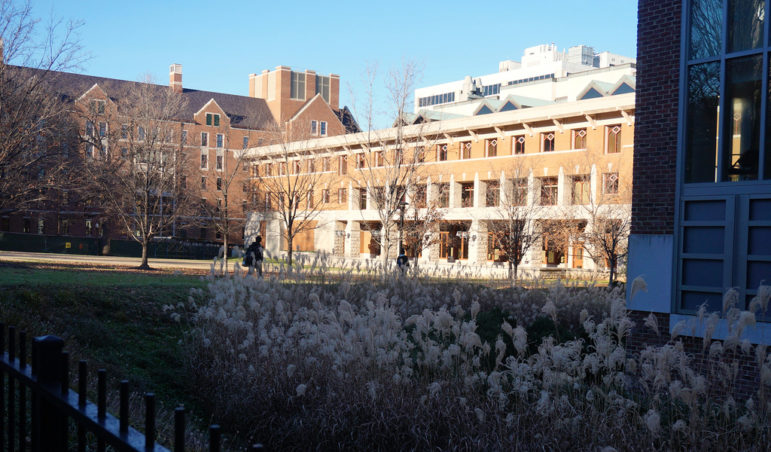
August 15, 2016; Vanderbilt News
NPQ’s nonprofit news coverage has addressed actions taken by many universities as they come to terms with the racially charged histories of some of those for whom halls are named, statues have been erected, and programs have been established. This is something of a reconciliation moment, and student activists are making their points while they are being heard.
In the latest on this front, the inscription on what was formerly known as “Confederate Memorial Hall” at Vanderbilt University will be changed—right after the university pays the Tennessee Division of the United Daughters of the Confederacy $1.2 million. This will repay the organization for its original investment of $50,000—made back in 1935.
Chancellor Nicholas S. Zeppos took the time to make a few remarks:
Many generations of students, faculty and staff have struggled with, argued about and debated with vigor this hall. We have asked time and again how can we have this symbol in the sky—a pediment is intended to draw a gaze upward—as part of our aspirational goals? Our debates and discussions have consistently returned over these many years to the same core question: Can we continue to strive for that diverse and inclusive community where we educate the leaders that our communities, nation and world so desperately need, with this hall as so created? My view, like that of so many in the past, and so many in our present, is that we cannot.”
Sign up for our free newsletters
Subscribe to NPQ's newsletters to have our top stories delivered directly to your inbox.
By signing up, you agree to our privacy policy and terms of use, and to receive messages from NPQ and our partners.
The residence hall bearing the inscription Confederate Memorial Hall has been a symbol of exclusion and a divisive contradiction of our hopes and dreams of being a truly great and inclusive university. It spoke to a past of racial segregation, slavery,and the terrible conflict over the unrealized high ideals of our nation and our university, and looms over a present that continues to struggle to end the tragic effects of racial segregation and strife.
The name is discordant with our own work under the founding charge of Cornelius Vanderbilt, to find union and healing after the bloodshed of the Civil War. The project of Vanderbilt, much like the project of America, reveals that “the arc of the moral universe is long, but it bends towards justice.”
Vanderbilt has been trying to change the name of the hall since 2002, but the UDC brought suit to retain the original name. Three years later, an appeals court found that the University must pay the current value of the donation to liberate the hall, and the board has now approved the expenditure.
“In removing this pediment, we are not seeking to rewrite history or to avoid the questions that should be asked of Vanderbilt and of our nation,” Zeppos said. “We are realizing the truth—that we have the privilege every day to teach, to learn and, indeed, to make history.”—Ruth McCambridge












